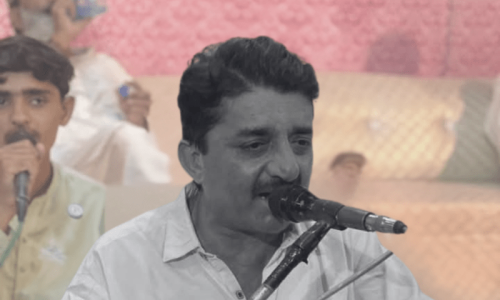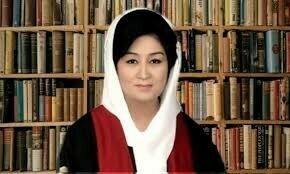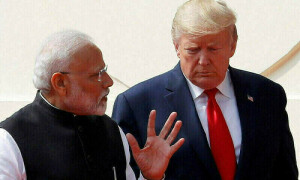NAJAF, Aug 18: Shia leader Moqtada al Sadr agreed on Wednesday to disarm his militia and leave Najaf's Imam Ali Mosque but only after a truce with encircling US marines. A senior aide said Moqtada Sadr had demanded a ceasefire first with US-led forces in Najaf before disarming his Mehdi militia and leaving the mosque.
Explosions and gunfire still echoed around the mosque hours after the announcement that Sadr had agreed to end an uprising that has posed the biggest challenge to Prime Minister Iyad Allawi since he took over from US-led occupiers on June 28.
"Sayyed Moqtada and his fighters are ready to throw down their weapons and leave for the sake of Iraq," Ali al Yassiri, Sadr's political liaison officer, said. "But they should stop attacking him first and pull away from the shrine."
Delegates at a meeting to choose an interim national assembly in Baghdad said Moqtada Sadr had agreed to accept their demands to resolve the two-week crisis that has killed hundreds, spread to seven other cities and rattled world oil markets.
Sadr's fighters have holed up in the shrine in the heart of the southern city, hoping US and Iraqi forces will not dare to attack one of the holiest sites for Muslims. Jalil al Shumari, a delegate to the Baghdad meeting, read a letter from Moqtada Sadr's office announcing the radical had backed down.
"The agreement from Sadr came after many calls from Iraqi tribes, parties and citizens whom pressured him hard," he said.
"TEACH THEM A LESSON": Defence Minister Hazim al Shaalan had some six hours earlier said an assault was imminent on the golden-domed mosque. "We are in the process of completing all our military preparations ... We will teach them a lesson they will never forget," Mr Shaalan said in the city after meeting local officials.
American marines and soldiers have been doing most of the fighting in Najaf, but Mr Shaalan said Iraqi soldiers had been training to storm the shrine complex and that US forces would not enter the sacred site.
The scion of a family of religious scholars, Moqtada Sadr, 30, is the most powerful opponent of the United States and the interim government. The director of Najaf's main hospital, Falah al Muhana, said 29 people had been brought in killed or wounded in the clashes on Wednesday, but there were no more precise figures. US casualties are treated at their own bases.
Apart from Sadr leaving the shrine, the delegates demanded the militants lay down their weapons and the cleric and his men disavow violence and participate in elections set for January.
The Najaf uprising has exposed the government's reliance on US troops _ a major dilemma for Mr Allawi before elections in January. Iyad Allawi must be seen to tackle the challenge to his authority, but using heavy-handed tactics near Najaf's shrines could enrage the Shias. -Reuters

















































Dear visitor, the comments section is undergoing an overhaul and will return soon.